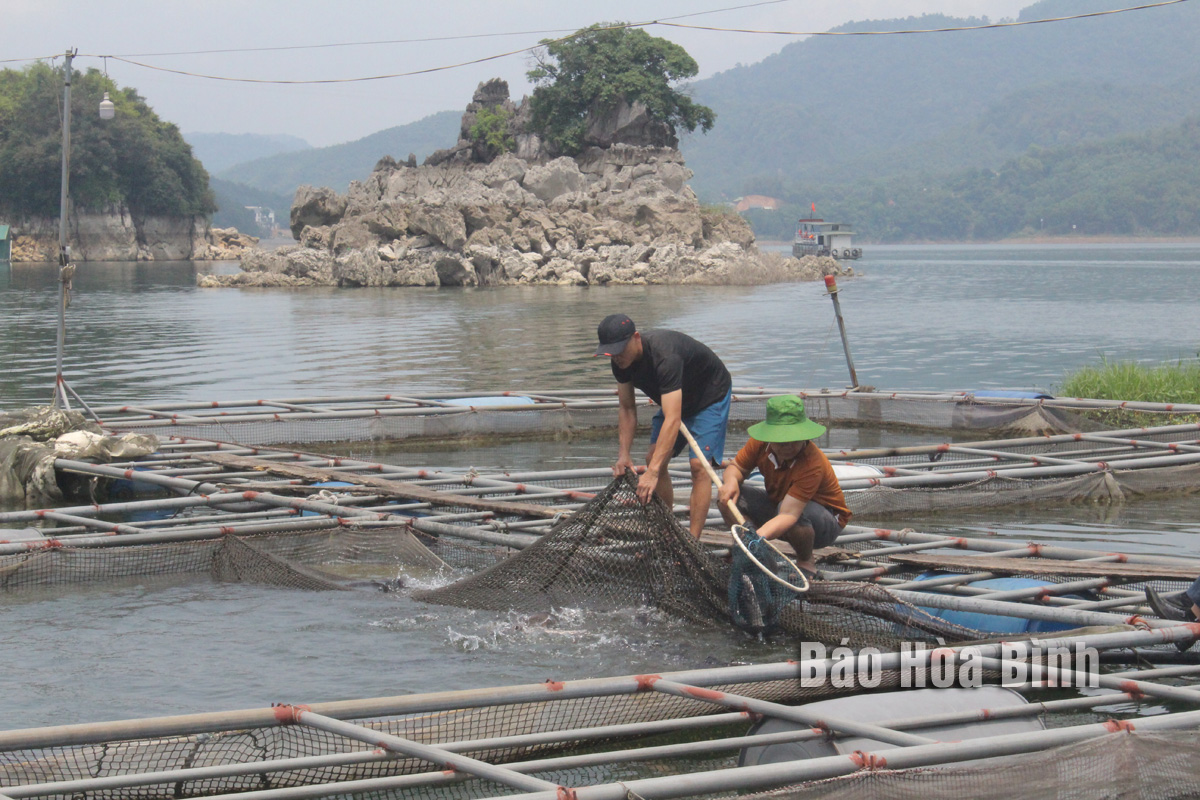
Building OCOP products is part of the measures that Hoa Binh has worked out to improve the values of local fisheries as well as promote sustainable development of the sector.

Developing
OCOP products helps increase the values of the local aquaculture products.
Being one of the five provinces boasting huge
potential for reservoir fisheries development, Hoa Binh has issued various
policies to encourage and support sustainable cage culture and strive to
develop its "Da River fish” and "Da River shrimp” brands which were recognised
by the Intellectual Property Office of Vietnam.
Besides, its efforts to develop aquaculture OCOP
products have paid off, as its five processed goods are certified as four-star
OCOP and four as three-star ones.
Cage culture has been developed in five hamlets
in Tien Phong commune, Da bac district over the past years. However, not until
the Da Giang Eco Cooperative set up production linkage with farmers, has
aquaculture brought high income to the locals.
Last year, the cooperative’s Da River black
carp, Da River black hemibagrus guttatus, and Da River armorhead catfish were
recognised as three-star products, which is seen as a motive to bolster local
caged-fish farming.
Director of the cooperative Xa Ngoc Hung said
the cooperative has given weight to intensive processing instead of selling
fresh fish, adding getting the OCOP certification has made it easier for the
cooperative to popularise its products and increase their values.
Head of the provincial Department of Fisheries
Luong Thanh Hai said that the sector has paid due heed to piloting cage culture
models in line with VietGAP standards, developing OCOP brands, building linkage
chains, and encouraging cooperatives to promote large-scale production in
accordance with specific quality standards.
According to data from the Hoa Binh Provincial Party Committee, the industrial production index for the first six months of 2025 is estimated to have increased by 20% compared to the same period last year. This marks the highest year-on-year growth rate for this period since 2020.
In the first six months of 2025, Hoa Binh province’s export turnover was estimated at 1.145 billion USD, marking an 18.11% increase compared to the same period in 2024. Import turnover was estimated at $ 804 million, a 17.15% increase, which helped the province maintain a positive trade balance.
The lives of the ethnic minority farmers in Tan Lac district have gradually improved thanks to the new directions in agricultural production. This is a testament to the collective strength fostered through the professional associations and groups implemented by various levels of the district’s Farmers’ Union.
With the motto the "product quality comes first,” after nearly one year of establishment and operation, Muong village’s Clean Food Agricultural and Commercial Cooperative, located in Cau Hamlet, Hung Son Commune (Kim Boi district), has launched reputable, high-quality agricultural products to the market that are well-received by consumers. The products such as Muong village’s pork sausage, salt-cured chicken, and salt-cured pork hocks have gradually carved out a place in the market and they are on the path to obtaining the OCOP certification.
In the past, the phrase "bumper harvest, rock-bottom prices" was a familiar refrain for Vietnamese farmers engaged in fragmented, small-scale agriculture. But today, a new spirit is emerging across rural areas of Hoa Binh province - one of collaboration, organisation, and collective economic models that provide a stable foundation for production.
Maintaining growing area codes and packing facility codes in accordance with regulations is a mandatory requirement for agricultural products to be eligible for export. Recently, the Department of Agriculture and Environment of Hoa Binh province has intensified technical supervision of designated farming areas and packing facilities to safeguard the "green passport" that enables its products to access international markets.



